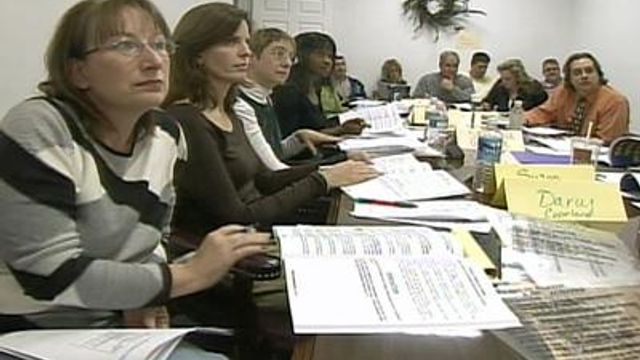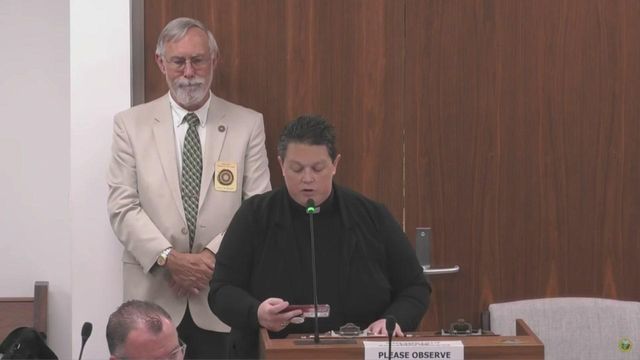Expert offers ways to make your resume talk
The recession is taking out jobs at an alarming rate, with tens of thousands of new layoffs announced every day. Layoffs are hitting some people who haven't looked for a job in years, maybe even decades. The resume you used in the 1980s or 1990s simply won't cut it these days. During a tough job market, you have got to make your resume talk.
Susan DuBois is among the people who began to wonder how her resume stacked up.
“I really need to revamp my whole resume and write it again,” she said.
She is learning how to make her resume talk.
She’s taking a class from resume resume expert Dick Hart who teaches Make Your Resume Talk classes for Wake Technical Community College.
“Too many resumes now are what I call 'obituary resumes' – dead on arrival,” Dick Hart said.
“Your resume is your sales pitch. What do you have to offer other people?” Hart said.
Hart believes the most important part of the resume is a targeted objective.
“Target a job. Target a company and the experience and skills you can bring to that job. To me it's like a headline in a newspaper. If it doesn't get read, the resume won't get read,” Hart said.
Next, Hart says to focus on the results you have accomplished in your career – not your duties.
“Most of the resumes I get in class are, 'I did. I did. I did.' That's not what I'm looking for. I want to know what I call your 'you factor.' What did you do to make a difference? Your energy. Your focus. Your attention. Your drive that changed things for the company. To show other companies you've got some get up and go about you. It's not just, 'I worked everyday,'” Hart said.
Hart said to stay away from wordage such as: typed letters, answered phones and handled questions. Instead focus on results: handled 50 percent of questions personally and never left a customer on hold for more than 30 seconds, for example.
By focusing on results, the resume "starts to tell a different story. This is someone who cares about who is on the other end of the line,” Hart said.
Those resume suggestions were a real "ah-ha" for DuBois.
“I've always had my same resume and I kept just adding to it. And then it was getting too long. I was down to like three pages, and I cut it down to two, and he's saying I need to cut it down to one," DuBois said.
Resumes should always be one page, Hart said. He also urges everyone to check their spelling carefully – not just use “spell check.”
“I’ve seen more ‘supervisory mangers’ than I want to, but that’s a real word so [spell check] doesn’t catch it” said Hart.
The bottom line: to get potential employers to talk to you, you have to first make your resume talk to them.
“You've got to get to the front of the line. And that's what I'm trying to do with this advertisement (resume) is to get people to the front of the line,” Hart said.
Hart's two-day class is part of a cooperative effort between the Employment Security Commission and Wake Tech. It is free for anyone who is unemployed, underemployed or received a layoff notice. For everyone else, the class cost $55.
To learn more about upcoming Make Your Resume Talk classes (see page 48), you can call Wake Tech at 919-866-5800 or send an e-mail to success@avadongroup.com. Classes are also offered at the Western Wake Campus, 9101 Fayetteville Road, Raleigh, and at the Employment Security Commission, 700 Wade Ave., Raleigh, and at the ESC in Cary, 742 E Chatham St # F.










